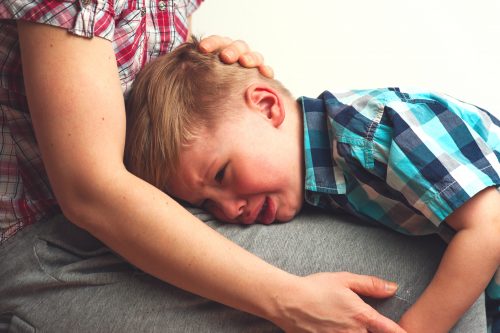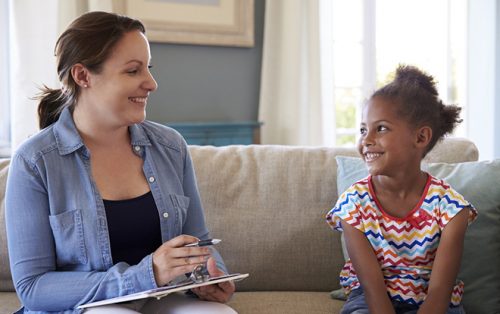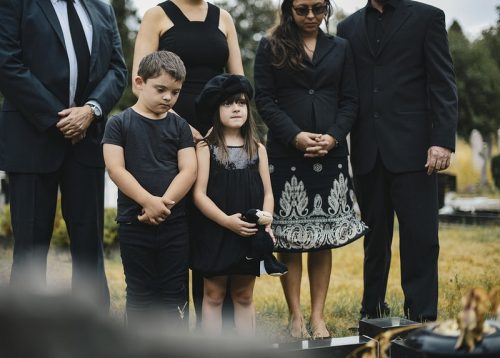
Source: peacefulparent.com
The common objectives of child counseling differ and are dependent on the child’s problems. But it usually centers on and tackles matters in a young adolescent’s life that are relevantly affecting his growth, mental health, and overall wellness. The objective is to assist your child in learning strategies, tools, and approaches that can prepare him for any difficulties that he faces now and in the years ahead.
Ultimately, a common objective of child counseling is assisting your child effectively deal with challenging circumstances that cause the following:
Trauma
The fact is that some young adolescents are unprotected from disconcerting circumstances that leave them traumatized – circumstances that no child should experience. The unpleasant and devastating effects of trauma may include detachment, shock, mistrust, depression, and anxiety. Sadly, in some instances, it can result in posttraumatic stress disorder.
PTSD indications include a deep desire to stay away from individuals who have gone through trauma themselves and avoid troubling flashbacks, nightmares, and sad memories. They usually present with uncontrolled aggression or anger and insomnia, and other sleep disorders. Fortunately, child counseling can provide these children with PTSD a space to express their fears, worries, and concerns.
Child counselors, therefore, can help your child realize that it is not wrong to talk about what they went through. In fact, it is encouraged. In addition, counselors teach children a range of coping strategies that they can utilize during times when they think they ‘can’t handle it,’ meaning that when they go through a flashback that stresses them out, they will learn how to grab a helpful tool from his toolkit to manage it. Tools include relaxation techniques, positive thinking, reframing, and opening up to a trusted family or significant other.
Anxiety
Among the primary advantages of counseling for young adolescents is that it educates them on efficiently dealing with anxiety and emotional detachment on their own. More particularly, your child will learn how to avoid anxiety attacks and manage their anxiety better.
In addition, a child counselor can also assist your child in recognizing that suppressed thoughts and feelings only make things worse. By expressing them to a qualified counselor, your child will eventually get the necessary help that he requires to successfully inhibit or eliminate the negativity that is causing his mental and psychological distress.

Source: mahealthcare.com
Low Self-Confidence
Some kids suffer from decreased self-confidence. When this happens, it can also result in depression, substance abuse, self-harm, anxiety, and even suicide, as children with low self-esteem usually feel empty, useless, and unloved. Consequently, they start to think that their loved ones and significant others are better off if they are gone. A child counselor can encourage your child to enhance his self-confidence in several ways. For example, the child counselor teaches your child ways to see the bigger picture and delve deeper to determine the underlying cause of his problems.
Another method that your child will be able to practice is positive affirmations to improve self-acceptance and self-esteem. He will also know the importance of opening up to a loved one, a trusted individual, or a qualified counselor about his disturbing thoughts and emotions.
Loss And Grief
The sudden death of a family member, friend, or pet can result in a significant amount of loss and grief. If it is painful to you as an adult, you should know that it’s ten times more disturbing for a child who is not as mature as you and is raw in terms of experiences and coping strategies. For kids who go through grieving, it can severely hard for them to understand what’s going on, and they may be engulfed with conflicting and erratic emotions such as denial, depression, anxiety, and anger.
A child counselor helps young adolescents better understand the process while educating them that it is fine to go through confusing feelings. In addition, the counselor explains that loss and grief are normal feelings that other people frequently experience.
There is no limitation as to the length of time that an individual must grieve, and there is no wrong or right manner to do it. It is vital, though, as parents, to be observant of your child and if he seems to be drowning further down and not making positive steps toward recovery after a year or two. Then, it’s time to consult a child counselor.
A child counselor will impart knowledge on your child about coping mechanisms and how vital it is to express his feelings with a trusted person, using his grief positively through music, writing, art, and using his voice to share experiences and memories of the individual or thing that your child has lost.

Source: rawpixel.com
Changes
For numerous kids, change can be traumatic. These include relocating to a city or state, getting into a foster care system, changing schools, or divorce.
Adults, like parents, have the mechanisms to embrace and adjust to these changes, and obviously, most children don’t. So though life changes might not tremendously damage your capacity to function, it could be entirely different for your child.
Child counseling effectively educates your kids on how to efficiently adjust to the changes by concentrating on the affirmative areas of their lives. It also teaches them to practice self-talk in times when they feel stressed about all the events that are new to them.
Ultimately, child counselors instill in your children how to take a deep breath when they have difficulty adjusting to the freshness of it all. The objective of these counselors is to encourage your child to comprehend and embrace these changes and think of them as something natural, and that how they feel is not permanent. Soon, your child will be able to adjust efficiently and will be on his way towards healing.
